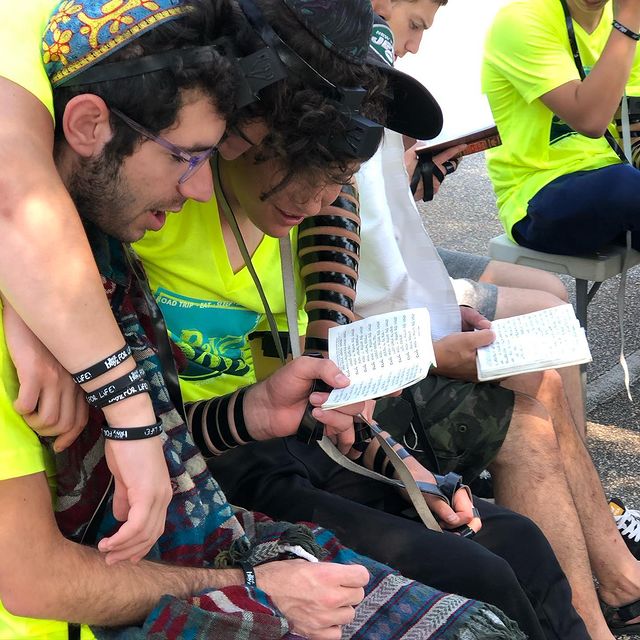
Our Mission
To address the specific needs of youth in the orthodox community struggling with disenfranchisement, complicated family systems, addictions, and crisis by providing them with support, guidance, belonging, and meaning through ongoing outreach, programming, and mentorship.
Our Story
The Gavz Project was started in 2000 in memory of Rabbi Gavriel Klatzko, affectionately known as Rav Gav. Rav Gav was a pioneer in outreach and founded the Sunny Road Synagogue in Johannesburg, South Africa. Gavz was founded in response to a lack of services and programming for what was at the time termed “at-risk youth”.
Our first project was the Camp Gavriel, The Gavz Boyz Summer Traveling Experience. This program allowed us to effectively reach teenagers that had fallen out of the traditional orthodox system in an unprecedented way. The impact was amazing as these teens opened up and flourished. For the first time in a long time they felt like they belonged. The relationships forged over that summer enabled these teens to reclaim their lives and begin building their future.
The success of The Gavz Boyz summer made it evident that these teens could be reached but more was needed. The Gavz Boyz Project expanded its programming to reach more youth and help change the status quo. Over the years, Gavz has touched the lives of thousands of teens and their families. With innovative programs and a tireless commitment to our youth Gavz has helped countless teenagers overcome challenges, face their fears, break the stigma, and find a place has productive members of society. These teens today have their own families and have become leaders of their communities.
In 2014, The Gavz Project was absorbed by Amudim Community Resources. Amudim was built on over 20 years of experience dealing with crisis intervention. It broke down barriers within our community in confronting childhood sexual abuse, addiction, and mental illness. Amudim developed a unique system of integrated case management and referrals. It also attacked community education and changed the way people relate to these issues. Working under the Amudim system has helped expand our available resources and extend our reach to help even more of our youth.
There is ever more that needs to be done and can be done. The Gavz Project under Amudim is committed to tackling the challenges and stigma that face our youth in an ever-changing world. Our staff is dedicated to ensuring that each and everyone of our youth has a place within our communities. Our youth are our future and we will not fail them.
Goals
1. To create safe spaces physically and metaphorically where a teen can feel they are welcome and belong. This allows them to let their guard down and not feel like they have to hide behind a façade and offers them a unique opportunity to engage and explore their true selves.
2. To create programming that is engaging and exciting. By providing teens with healthy outlets that they enjoy, we can help to deter them from engaging in dangerous behaviors. These programs also help to develop skills and self-confidence allowing them to regain a healthy sense of self. Effective fun programming will encourage youth to return thereby further developing healthy relationships and self-confidence.
3. To develop methods to do outreach in the hopes of connecting those who are struggling with the resources available to them. Many struggling teens have become detached from their families and communities. They have lost faith in adults and the “system” and have developed a cynical skepticism of anyone trying to “help”. To meet them where they are at, develop trust on their turf, and build bridges that will enable them the opportunity to reconnect.
4. To develop resources to meet their needs. There are a myriad of reasons why a teen falls out of the system. As a community, we have failed them and have not been able to adequately provide for their needs. We need to identify needs and address them effectively. These needs include food, safe shelter, remedial education, therapy, and others. If we simply give them a good time, but fail to address underlying causality then we too have failed them. We need to develop the tools to identify needs and the resources to address them.
5. To develop relationships that foster positive growth and sense of belonging. To build long lasting, honest, meaningful relationships with themselves, their peers, and their counselors through mutual respect. In turn, these relationships foster integrity by learning to communicate openly and honestly. This provides participants with a sense of belonging, much like a family, and affords them true friends and role models to serve as a healthy support system in the coming months and throughout their lives.
